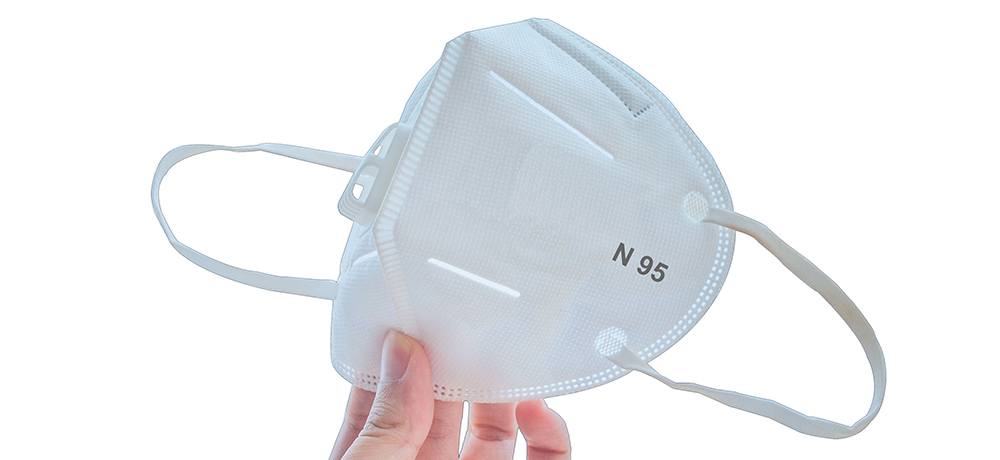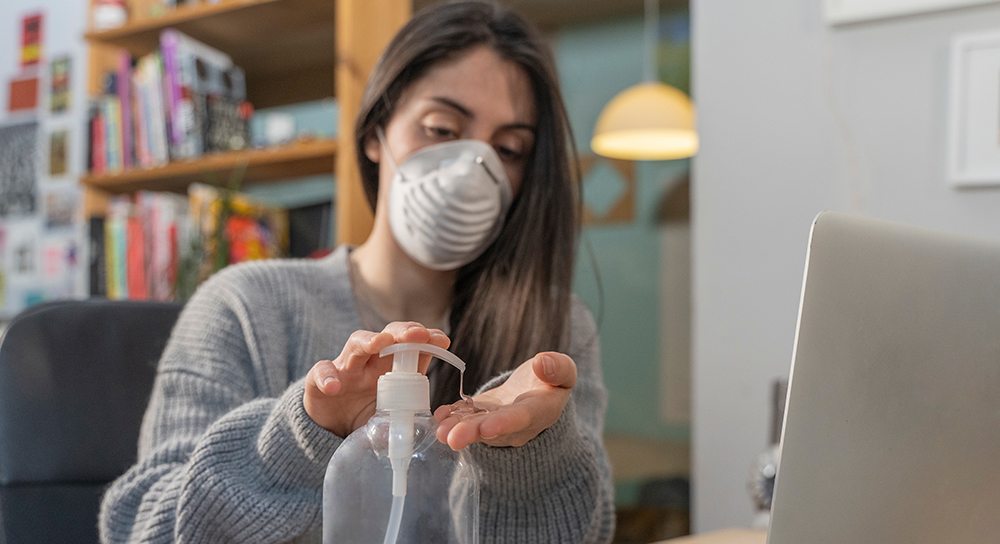

Author:
Revised:
September 4th, 2020
What’s an HVAC company doing writing about COVID masks? Well, that’s an interesting story…
We work with high-quality air filters as part of our work. Among other uses, better filters can capture and neutralize airborne contaminants that include many viruses.
We’ve written about home air quality a bunch, including its implications for protecting against COVID-19 (more formally known as SARS-COV-2). And we’ll continue to do so as more information comes out about both the dangers and potential solutions in mitigating coronavirus risk.
RELATED: Can HVAC Protect Against COVID-19 and Other Illnesses?
But even we were a bit surprised when we started to see videos cropping up online of people retrofitting facemasks with materials from HVAC filters! It wasn’t long after that we started to field more and more questions about HVAC and COVID, including the occasional question about facemasks.
There’s a lot of misinformation out there regarding COVID response, but there’s also a lot that we do know from repeated studies and expert recommendations. So we're here to disambiguate when it comes to filters and virus protection.
As with anything regarding COVID-19, many of the conclusions drawn are best understood as provisional, and subject to further testing and scrutiny. Like everyone else, we’re absorbing information as it comes in, to give the best and most complete information to our customers and online audience.
What are N95 Masks and HEPA Filters?
An N95 mask or N95 respirator can filter particles at a rate that is compliant with the U.S. National Institute for Occupational Safety and Health (NIOSH) N95 classification of air filtration. This classification means that the mask or respirator filters at least 95% of airborne particles.
In the case of N95 masks, they’re 95% effective at filtering for particles of 0.3 microns in size.
Microns are predictably small units of measurement. The average width of a human hair is approximately 70 microns, to give you a sense of scale. Particles that are 0.3 microns are literally hundreds of times smaller than that width.
We’ll talk more about micron filtration and filtration efficiency later, since it gets a bit technical.
HEPA stands for “High-Efficiency Particulate Air.” These filters can theoretically remove at least 99.97% of particles with a size of 0.3 microns. These particles can (and do) include bacteria and viruses.
There’s one more acronym I want to throw at you (last one, I promise!), since it will be important in a minute: MERV. This stands for “Minimum Efficiency Reporting Value,” which is just a fancy way of saying that it measures filter efficiency at filtering for particulates.
MERV is used to rate HVAC air filters. Some higher-MERV filters qualify as HEPA based on their efficiency.
Can N95 and HEPA Block COVID?
The short answer is yes. The longer answer requires a deeper understanding of how filtration works and how particles bond to one another to become trapped in a filter. In brief, though, coronavirus particles, as well as similarly small virus particles, can be trapped by such materials.
The pushback in some discussion circles comes from the fact that SARS-COV-2 particles are smaller than 0.3 microns. So that means they’ll pass through an N95 mask or HEPA filter, right? No, but the reasons for this aren’t always obvious.
For starters, coronavirus particles don’t travel alone. One infectious disease expert from Virginia Tech confirmed that “naked” COVID particles aren’t being transmitted. Instead, they bond to other particles and travel together. This is why there’s so much emphasis on moisture droplets, such as mucus or saliva from sneezes. With limited exceptions, it’s these droplets that are the concern when it comes to masks and filtration. Fortunately, such droplets are more easily captured by filters.
The second reason that filters can capture virus particles has to do with micron size, and why 0.3 microns isn’t the smallest size they can realistically neutralize.

The Science of Particle Capture
As mentioned earlier, N95 masks have that name because they filter out 95% of particles of 0.3 microns. What isn’t mentioned in that description is that 0.3 microns is actually their least effective size. The percentage will be higher - sometimes significantly so - below or above that size.
So N95 masks are 95% at their lowest efficiency. This means good things for capturing particulates that are smaller than this, including many viruses.
Particles smaller than 0.3 microns also tend to move erratically, which means they aren’t “passing through” a mask in the way we might imagine. Additionally, N95 masks utilize charged fibers in the mask itself to attract particles. In this way, the masks act as magnets, not simply as a barrier. HEPA filters work similarly, attracting charged particles in addition to simply acting as a wall for others.
Importantly, masks can lose this charge, which makes them less effective. This is the reason why reusing masks is not generally recommended unless there is no other option.
Reusing N95 Masks
The inventor of the N95 mask recently came out of retirement to address the issue of reusing masks, and while the potential solutions varied, there are safe ways to reuse masks eventually. Especially as mask shortages continue to plague the country, this can be very important.
In short, he found that leaving them unused in an isolated location for a week was sufficient for the bacteria in them to become inactive. Other, more proactive methods included hanging them in the oven (!) for 30 minutes at around 160 degrees.

Can You Use HEPA HVAC Filters as Masks?
We wouldn’t recommend it if you have better options, but based on the research surrounding the use of HEPA filters as masks, the answer appears to be a resounding “yes.”
So, first off, for all the reasons we listed above, HEPA filters are pretty great at capturing microscopic virus particles.
This is why, for example, having a high-quality filter in your HVAC system is such a big deal for year-round health. It’s also why changing your filter regularly is important.
The other big concern is whether or not HEPA filters contain anything that would be harmful to your health if used regularly. The potential concerns include tiny fiberglass particles or other materials used in their creation.
The levels of fiberglass particulates have proven to be nominal at worst, and well within acceptable limits. Scholarly studies have labeled HEPA particulates as no more than minor irritants, on par with small amounts of dust.
MERV Ratings & Filtration
Remember the MERV acronym I mentioned at the beginning? Well hey, we’re finally circling back to it!
Current information on the virus suggests that MERV 13 (or higher) is the recommended efficiency for a filter to be able to effectively neutralize the coronavirus.
If you’re concerned about materials used in fiberglass HEPA filters, some high-MERV filters use only polyester and cotton. Heck, one company is selling MERV-13 material for just this purpose.
RELATED: Indoor Air Quality: Air Filtration & Air Purifying HVAC Products
Protect Yourself Responsibly
This is all interesting, but none of this information means that you should start tearing up your furnace filter to use in facemasks.
The reason for this is that we hope you have access to better options without having to DIY a solution that involves ruining an expensive air filter. Even with the data on these items, if a mask is constructed poorly, it won’t provide proper protection like many professionally-made masks will.
So then why talk about this at all? A few reasons:
- Information that helps understand a threat is never a bad thing.
- Creating a DIY mask may be a “last resort” for some without access to good protection gear.
- Understanding the science behind mask usage can help you protect yourself in other ways, including when you wear a mask or how often you reuse masks.
- Lastly, it highlights the need for good filtration in your home as well as in a facemask.
That last point is our wheelhouse here at Fire & Ice. We’ve known about the importance of quality filtration for years, and now we’re seeing that importance play out on a global scale.
Maybe you don’t need a DIY facemask. But maybe you could use an upgrade to your home’s filter, one that will not only help mitigate the risk of COVID, but will also keep you and your family healthier throughout the year against a variety of airborne threats.
If that’s you, give your HVAC partner a call. If you’re in Columbus, Ohio, or the surrounding areas, we hope that your first call is to us. We want to ensure the health and safety of our customers, earning your trust through expertise and attention to detail. In these dangerous times, our work might not solve the world’s ills, but it can make a difference for an individual home and the people who live there.



